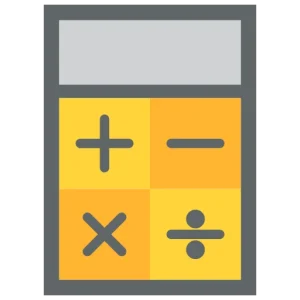Quants Menu
- HCF and LCM
- Number System
- Number Decimals & Fractions
- Surds and Indices
- Divisibility
- Ages
- LCM
- HCF
- Inverse
- Speed Time and Distance
- Work and Time
- Boats and Streams
- Pipes and Cisterns
- Averages
- Allegations and Mixtures
- Ratio and Proportions
- Simple & Compound Interest
- Simple Interest
- Compound Interest
- Percentages
- Profit & Loss
- Successive Discount 1
- Successive Discount 2
- AP GP HP
- Arithmetic Progressions
- Geometric Progressions
- Harmonic Progressions
- Probability
- Permutation & Combination
- Combination
- Circular Permutation
- Geometry
- Heights and Distances
- Perimeter Area and Volume
- Coordinate Geometry
- Venn Diagrams
- Set Theory
- Algebra
- Linear Equations
- Quadratic Equations
- Logarithms
- Clocks
- Calendars
- Clocks and Calendars
- Finding remainder of large powers
PREPINSTA PRIME
Harmonic Progression Formulas
Harmonic Progression Formulas in Aptitude
In this Page Harmonic Progression Formulas is given that is useful to Solve many problems in different Competitive Examinations.
Harmonic Progression:
A sequence is a harmonic progression when each term is the harmonic mean of its Neighboring term.

Harmonic Progression is a Sequence of quantities whose reciprocals are in Arithmetical progression. We have Limited Harmonic progression Formulas .Each term in the Harmonic Progression is the Harmonic Mean of its Neighboring Term. Hence, it is is a sequence of real numbers formed by taking the reciprocals of an Arithmetic progression. mean of its two neighbors.
HP is Represented in the form of \mathbf{\frac{1}{a_{1}} , \frac{1}{a_{2}} ,\frac{1}{a_{3}} ……\frac{1}{a_{n}}}
In this Page Harmonic Progression Formulas is given that is useful to Solve many Problems in different Competitive Examinations.
Formulas of Harmonic Progression (HP)
- How to find nth term of an HP
a_{n} = \mathbf{\frac{1}{(a + (n – 1)d)}}
where a_{n} = nth term,
\frac{1}{a}= the first term ,
d= common difference taken from AP,
n = number of terms in the sequence
- Harmonic Mean (HM)
Harmonic Mean is type of numerical average, which is calculated by dividing the number of observation by the reciprocal of each number in series.
If a, b are in HP, then there HM is
HM = \mathbf{\frac{n} {\frac{1}{a_{1}} + \frac{1}{a_{2}} ……\frac{1}{a_{n}}}}
Where, n = Total number of numbers or terms, a1, a2,…..an = Individual terms or individual values.
Harmonic Mean of two numbers a and b is \mathbf{\frac{2ab}{a+b}}
Harmonic Mean of three numbers a, b and c is \mathbf{\frac{3abc}{ab+bc+ca}}
Prime Course Trailer
Related Banners
Get PrepInsta Prime & get Access to all 200+ courses offered by PrepInsta in One Subscription
Using Formulas of Geometric Progression in Questions
Question 1:
The sum of the first n terms of a harmonic progression is given by (S_{n} = \frac{n^{2} + 4}{3n}). What is the common difference between the terms of this progression?
A) (\frac{1}{3})
B) (\frac{2}{3})
C) (\frac{3}{4})
D) (\frac{4}{5})
Solution: A) (\frac{1}{3})
The sum of the first n terms of a harmonic progression is given by (S_n = \frac{n}{a_1} = \frac{n}{\frac{1}{a}} = na), where a is the common difference. Comparing this with the given formula, we have (\frac{n^2 + 4}{3n} = na). Solving for a, we get (a = \frac{1}{3}).
Question 2:
In a harmonic progression, the n_{th} term is (\frac{1}{n+2}). What is the sum of the first 10 terms of this progression?
A) (\frac{185}{99})
B) (\frac{99}{185})
C) (\frac{135}{70})
D) (\frac{70}{135})
Solution: A) (\frac{185}{99})[/latex]
The sum of the first n terms of a harmonic progression is given by (S_{n}= a_{1}
(\frac{1}{1} + \frac{1}{2} + \ldots + \frac{1}{n}), where a_{1} is the first term. Substituting the given n_{th} term, we get (a_{1} = \frac{1}{n+2}). Then, (S_{10} = \frac{1}{n+2} (\frac{1}{1} + \frac{1}{2} + \ldots + \frac{1}{10}) = \frac{185}{99}).
Question 3:
The sum of an infinite harmonic progression is (\frac{5}{3}). What is the sum of the squares of the terms in this progression?
A) (\frac{10}{3})
B) (\frac{25}{9})
C) (\frac{15}{4})
D) (\frac{9}{5})
Solution: A) (\frac{10}{3})
The sum of the squares of the terms in a harmonic progression is given by ( S_{squares} = a_{1}^{2}(\frac{1}{1^{2}} + \frac{1}{2^{2}} + …..) , where a_{1} is the first term. Given the sum of the infinite harmonic progression as (\frac{5}{3}), we can use the result (S_{\infty} = a_{1} (\frac{1}{1} + \frac{1}{2} + \ldots) = \frac{5}{3}) to find a_{1}. Then, S_{squares} = \frac{10}{3}).
Question 4:
In a harmonic progression, the sum of the first 6 terms is 3 times the sum of their reciprocals. What is the sum of the first 12 terms of this progression?
A) 2
B) 3
C) 4
D) 5
Solution:C) 4
Let (S_{n}) be the sum of the first n terms and (S'_{n}) be the sum of the reciprocals of the first n terms. The given condition can be written as ((S_{6}) = (3S'_{6}) ). Using the formula for the sum of the first n terms of a harmonic progression, we have ((S_{6}) = \frac{6}{a})and ((S'_{6}) =\frac{6}{a}). Thus, (\frac{6}{a} = 3 * \frac{6}{a}), which implies (a = 3). Then, ((S_{12}) = \frac{12}{a} = 4).
Question 5:
In a harmonic progression, the sum of the first 5 terms is 6, and the sum of their cubes is 405. What is the first term of this progression?
A) (\frac{1}{3})
B) (\frac{1}{4})
C) (\frac{1}{5})
D) (\frac{1}{6})
Solution: A) (\frac{1}{3})
Let a be the first term and d be the common difference of the harmonic progression. The sum of the first 5 terms is given by ((S_{5}) = 5a + 10d = 6). The sum of their cubes is given by (S_{cubes}) = a^{3} + (a+d)^{3} + (a+2d)^{3} + (a+3d)^{3} + (a+4d)^{3} = 405). Using the value of ((S_{5})), we can solve for d, and then using ((S_{cubes})), we can solve for a, which turns out to be (\frac{1}{3}).
Also Check Out
Get over 200+ course One Subscription
Courses like AI/ML, Cloud Computing, Ethical Hacking, C, C++, Java, Python, DSA (All Languages), Competitive Coding (All Languages), TCS, Infosys, Wipro, Amazon, DBMS, SQL and others
- AP GP HP – Questions | Formulas | How to Solve Quickly | Tricks & Shortcuts
- Arithmetic Progressions – Questions | Formulas | How to Solve Quickly | Tricks & Shortcuts
- Geometric Progressions – Questions | Formulas | How to Solve Quickly | Tricks & Shortcuts
- AP GP HP –
Questions |
Formulas |
How to Solve Quickly |
Tricks & Shortcuts - Arithmetic Progressions –
Questions |
Formulas |
How to Solve Quickly |
Tricks & Shortcuts - Geometric Progressions –
Questions |
Formulas |
How to Solve Quickly |
Tricks & Shortcuts

 Apply For Jobs
Apply For Jobs Get Hiring Updates
Get Hiring Updates




Login/Signup to comment